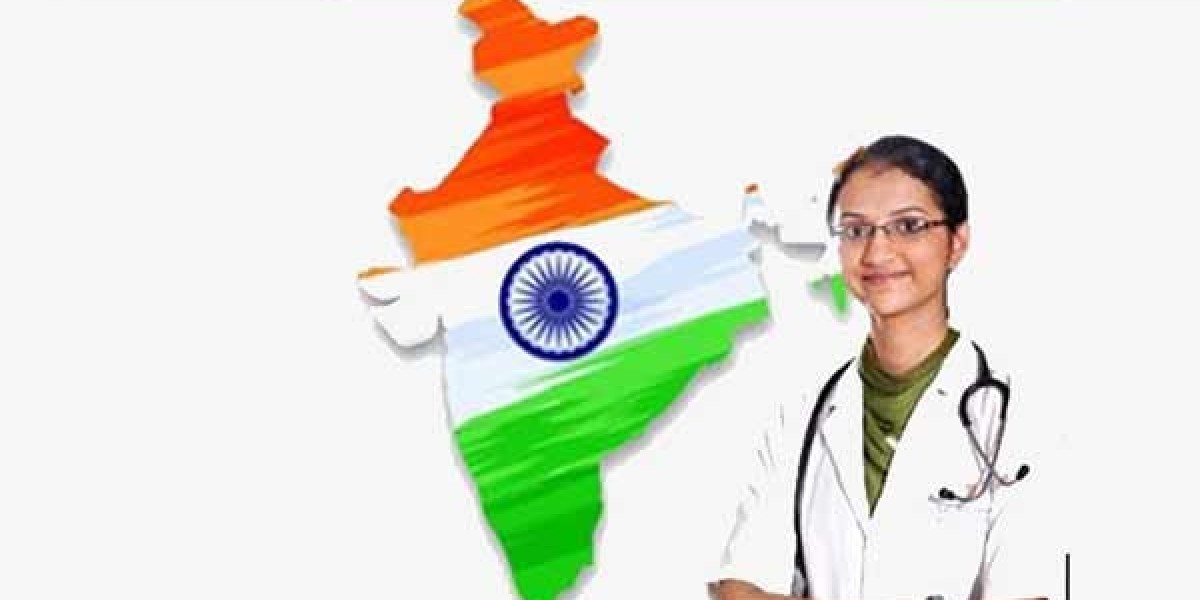MBBS in India: A Comprehensive Guide to Medical Education
MBBS in India is one of the most sought-after professional degrees for students aspiring to become doctors. India’s medical education system is renowned for its rigorous training, cutting-edge facilities, and diverse opportunities for practical exposure. From prestigious government colleges to top private institutions, pursuing an MBBS in India promises a fulfilling career in medicine.
Why Choose MBBS in India?
India is home to some of the world’s most reputed medical colleges, including institutions like AIIMS, JIPMER, and CMC Vellore. The country’s medical education system is designed to provide both theoretical knowledge and hands-on clinical training. Here are some key reasons to pursue an MBBS in India:
Global Recognition:
Indian medical degrees are recognized by the National Medical Commission (NMC) and are valid for practice in countries like the USA, UK, and Australia after completing additional licensing requirements.Affordable Education:
Compared to many countries, the cost of pursuing MBBS in India is relatively lower. Government medical colleges offer subsidized fees, while private colleges provide flexible payment structures.Comprehensive Curriculum:
The MBBS curriculum in India focuses on building strong foundations in subjects like anatomy, physiology, pharmacology, and pathology. The course also emphasizes clinical exposure through hospital rotations and internships.Diverse Clinical Exposure:
India’s vast population and diverse healthcare challenges provide students with unparalleled opportunities to learn and treat various medical conditions.
Eligibility Criteria for MBBS in India
To secure admission to MBBS in India, candidates must meet the following criteria:
Academic Requirements:
Students should have completed their 10+2 education with Physics, Chemistry, Biology, and English as core subjects. A minimum of 50% marks is required for general category students, while reserved categories may have a lower cutoff.NEET Exam:
The National Eligibility cum Entrance Test (NEET) is mandatory for all students seeking admission to MBBS in India. The exam assesses students' proficiency in biology, chemistry, and physics.Age Limit:
Candidates must be at least 17 years old at the time of admission.
Top Medical Colleges for MBBS in India
All India Institute of Medical Sciences (AIIMS), New Delhi:
Known for its excellent faculty and advanced research facilities, AIIMS is a dream destination for medical aspirants.Christian Medical College (CMC), Vellore:
CMC is renowned for its patient-centric approach and high-quality education.Jawaharlal Institute of Postgraduate Medical Education and Research (JIPMER), Puducherry:
A prestigious institution offering a unique learning experience.Maulana Azad Medical College (MAMC), New Delhi:
MAMC consistently ranks among the top medical colleges in India.
Course Structure of MBBS in India
The MBBS course in India spans 5.5 years, including a one-year internship. Here’s a breakdown of the program:
Pre-Clinical Phase (1-2 years):
Students learn foundational subjects like anatomy, biochemistry, and physiology.Para-Clinical Phase (2-3 years):
This phase includes pathology, pharmacology, microbiology, and forensic medicine, combined with early clinical exposure.Clinical Phase (4-5 years):
Students undergo clinical training in disciplines like medicine, surgery, pediatrics, and gynecology.Internship (1 year):
The mandatory internship involves rotations in various hospital departments, offering real-world experience.
Cost of MBBS in India
Government Colleges:
Tuition fees in government colleges range from INR 10,000 to INR 1,00,000 per year, making them highly affordable.Private Colleges:
Fees in private medical colleges can range from INR 5,00,000 to INR 25,00,000 annually.
Scholarships and financial aid are available for meritorious and economically weaker students.
Career Opportunities After MBBS in India
Graduates of MBBS in India have a wide range of career options:
Clinical Practice:
Many students start practicing as general physicians or pursue specializations through postgraduate programs like MD/MS.Research:
With a strong focus on academics, many MBBS graduates opt for careers in medical research.Healthcare Administration:
Some graduates take up roles in hospital management and public health administration.Opportunities Abroad:
Indian MBBS graduates can clear exams like USMLE or PLAB to practice in countries like the USA and UK.
Conclusion
Pursuing MBBS in India is an excellent choice for students seeking a well-rounded medical education. With state-of-the-art infrastructure, affordable tuition fees, and diverse clinical training opportunities, Indian medical colleges equip students with the skills and knowledge to excel in the medical field. Whether your goal is to work in clinical practice, research, or global healthcare, an MBBS degree in India opens endless doors to success.








